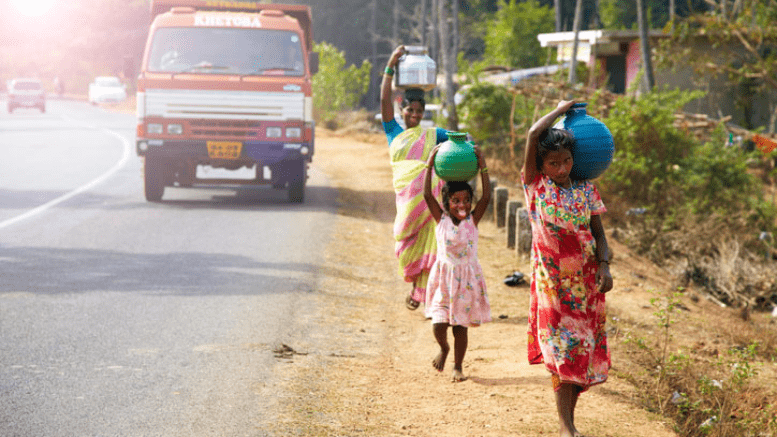Professor Sera Young creates the Individual Water Insecurity Experience Scale (IWISE) to measure how water insecurity impacts people globally
October 12, 2021

As the world comes together to combat climate change, information about global access to water has become increasingly important.
Professor Sera Young, of the Department of Anthropology, created a 12-item Individual Water Insecurity Experience Scale (IWISE) that measures how water insecurity impacts people around the world.
Young tested the utility of the scale by using nationally representative data from 43,970 individuals in different 31 low- and middle-income countries. Participants were asked questions such as how often they worried about having enough water, if they were unable to wash their hands because of problems with water, and how often they went to bed thirsty.
“The breadth [of the data] is one of the things that’s really special,” Young said. “And that we have identified a scale that works across incredibly diverse settings opens up a world of possibilities for policy and practice.”
Young found the IWISE scale is reliable, meaning that the items in the scale work together consistently. It performs equivalently across countries, so water insecurity experiences can be compared from one country to another. The scale is also valid, which means it accurately reflects how the experiences of individuals’ water insecurity differ across countries and among individuals within countries.
These results make this the first tool that successfully compares individuals’ experiences with water access, use, and reliability across diverse climates, geographies, and cultures. Now, practitioners and policymakers will be able to better tailor interventions for at-risk populations. The IWISE will also provide insights into the progress made towards global development goals.
Young and her colleagues are currently fundraising to implement the IWISE Scale in 2022 in 140 countries.
“You can’t manage what you can’t measure,” Young said. “The world is finally realizing that water doesn’t grow on proverbial trees—and now we can measure this precious resource with much higher resolution.”
Learn more about this study:
IPR anthropologist’s scale provides snapshot of people’s experiences during global water crisis
Anthropologist’s scale provides a snapshot of people’s experiences during global water crisis
Science & Technology

Northwestern accelerates quantum research with NVIDIA technology
September 19, 2025
NVIDIA code could help researchers tackle computationally demanding tasks hindering quantum research Northwestern University physicists are using NVIDIA technology to tackle the computationally demanding tasks hindering quantum research. Northwestern theoretical physicist Jens Koch and his research group…

CRISPR’s efficiency triples with DNA-wrapped nanoparticles
September 18, 2025
New system delivers CRISPR machinery more safely and effectively into cells With the power to rewrite the genetic code underlying countless diseases, CRISPR holds immense promise to revolutionize medicine. But until scientists can deliver its…

Passion for the planet: A new generation of environmental stewards starts here
May 29, 2025
Over the last two decades, the Weinberg College-housed Program in Environmental Policy and Culture (EPC) at Northwestern has embraced the humanities and social sciences and cultivated a new generation of environmental stewards. Growing up in…

Northwestern receives $25 million gift to advance adolescent mental health research
May 16, 2025
New institute will study psychology of emerging adults, leading to innovative wellness programming for students at the University and beyond Northwestern University is launching the Institute for Adolescent Mental Health and Well-Being, an interdisciplinary initiative…



